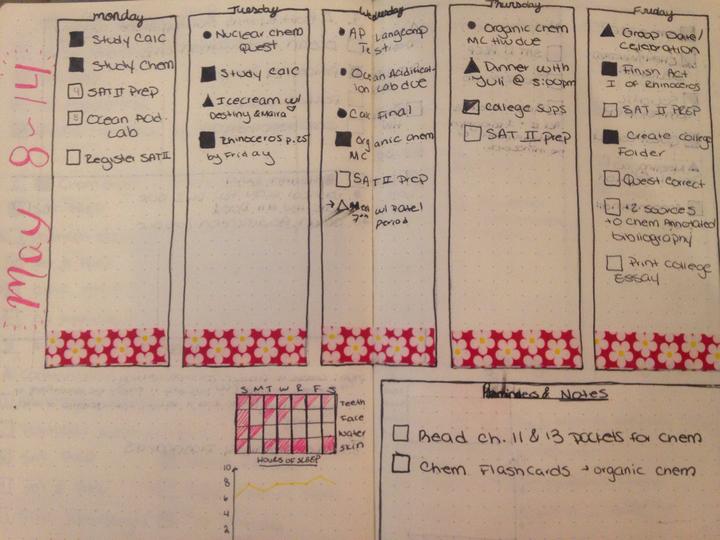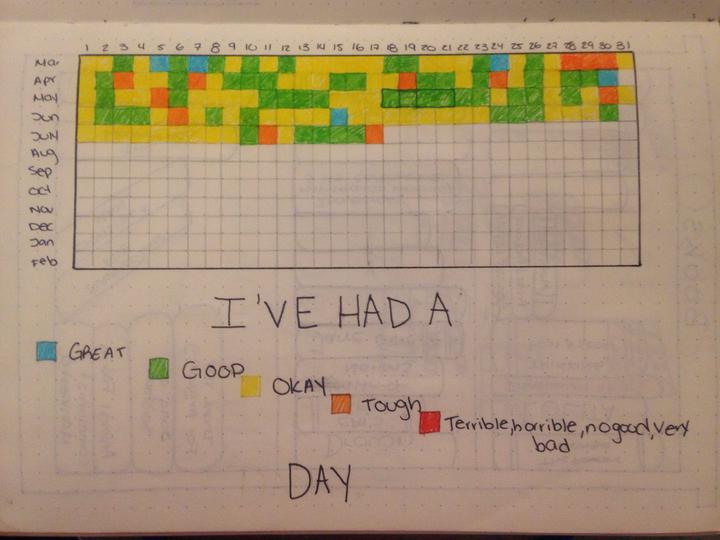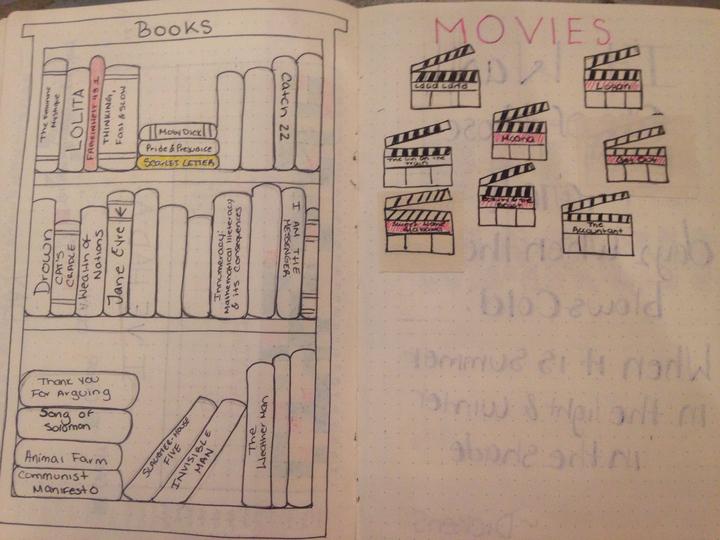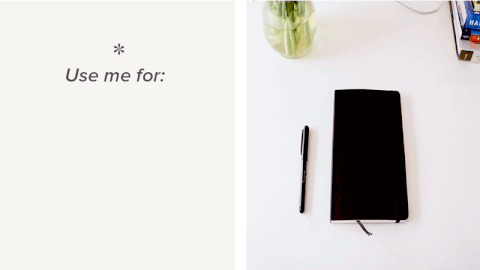How Bullet Journaling Transformed My Life

“December 15th.”
My Calculus teacher’s voice sounded like it came from about a mile away. I looked up from the picture I was doodling in the margins of my notebook. He was writing the date on the chalkboard in massive letters as he spoke, “this is the date of your final exam. Please plan for this, as there will be no make-up date offered.”
As all the other students flipped open their planners and immediately scribbled into them, I felt compelled to do the same. I shuffled through my bag and lazily pulled out my planner. It was rusted and worn from living in the bottom of my bag but I didn’t mind. After a few months of using it, I rarely used it except for situations like this. I made a quick note of the date and tossed the booklet back.
As my professor went on to talk about differentials or something, I thought about all the things I had to do when I got home: type up a lab report for Chemistry class, clean my room, and send someone a text to wish them a happy birthday (I couldn’t seem to remember who…). Overwhelmed by all the things I could not keep track of, I pondered at the irony of how much easier it would be if I had made better use of the planner I trudged around in my bag. However, I also knew that the planner system just did not work for me in the way that it seemed to work for other people. In my opinion, there was no single system that I could keep up with or, more importantly, that could keep up with me.
It wasn’t until a few weeks after that I discovered bullet journaling. The idea is to design your own planning system to fit your needs. The journal came with dots along the pages to help create my calendars and task managers, but beyond that I was in the driver’s seat. I thought it was godsent. That same week, I ordered my journal from Amazon and began taking control of my own planning needs. Along the way, I discovered that the bullet journal is an unrivaled system to manage my life.
Here’s why it worked for me:
1. I could format my journal in a way that was completely personalized
The issue with traditional planners was that I was subjected to what someone else assumed was efficient for me. Sure, there was some liberty in choosing what planner I purchased but I still felt that I was trying to structure my life around my planner, when it should have been the other way around.
Opening my bullet journal to empty pages forced me to ask myself what I needed out of my planner. I could take control of the way I kept track of my tasks and events by making my needs the driving force.
I found that beginning my bullet journal with a “future log” similar to the one above was an efficient way to keep track of events that were in the far future. Picture via Pinterest

2. My bullet journal changed face as my needs evolved
There were some weeks that I was swamped with multiple assignments from my classes. Other weeks my focus was on meeting with my counselors and mentors. One week I was desperately planning for a weekend trip to tour colleges. Had I still been using my old planner, I never would have been able to keep up.
The bullet journal is meant to support you as your needs change. I formatted my weekly spreads around how busy my week would be. If I knew I would have more tasks in a day than usual, I would maximize my space to jot down as many assignments as I needed. If I expected an easier week, I could use the extra space to plan for the next week or include some doodles if I had time.
3. I discovered what worked and did not work for me
When I first began bullet journaling, I took a minimalist approach. I didn’t want to be one of those people that spent hours planning for the month. My prime focus was productivity, not aesthetic.
However, I soon discovered that I was more motivated to open my journal when it was aesthetically pleasing. The more time I spent on it, the more invested I was in using it. I got inspiration for spreads from Pinterest and began spending more time on the creative aspect. Admittedly, I did turn into “one of those people” and once a month I sit in front of the television for hours to plan but only because that is what’s most effective for me.

4. I could keep track of whether I was maintaining positive habits
Sometimes I was so involved in the things I need to get done for school or work that I overlooked self-care. It’s always good to be productive, but not at the cost of prioritizing your mental and physical health.
With my bullet journal, I could keep track of whether I was maintaining positive habits. This meant anything from drinking enough water to spending some time everyday away from a screen. I even incorporated a day tracker to motivate myself to reflect at the end of each day.

5. My bullet journal is more than just a planner
I always included a monthly calendar and weekly agenda, but sometimes my bullet journal acted as my space to take notes, jot down ideas, and set goals for myself. While some planners do designate a handful of pages towards the back for random notes, I could use my bullet journal for what I need, when I needed.
When I decided to keep track of the books I wanted to read or movies I wanted to watch, I had that liberty. When I had to plan for this editorial, I only had to flip to the next page of my journal, not some random space towards the back.

Now that I have the freedom to plan for myself, I no longer feel overwhelmed by everything I need to keep track of. Bullet journaling has completely changed the way that I organize my life. When I flip to the next page of my journal, completely in control of what will become of it, I feel as if everything has fallen into place.






